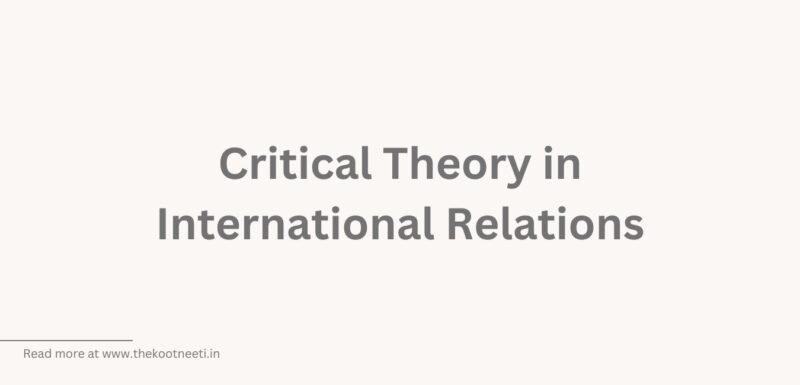What is Critical Theory in International Relations?

Critical theory in international relations is an approach that seeks to challenge and critique mainstream assumptions and practices in the field of international relations. It is influenced by critical theory, a broader intellectual tradition that seeks to challenge and critique social, political, and economic structures and practices.
Critical theory in international relations often focuses on issues of power, inequality, and injustice in the international system. It seeks to expose and challenge the ways in which mainstream theories and practices in international relations reproduce and reinforce power imbalances and injustices, and to offer alternative perspectives and practices.
Critical theory in international relations often draws on a range of disciplines and intellectual traditions, including philosophy, sociology, anthropology, and political theory. It is associated with a number of sub-fields within international relations, including critical security studies, feminist international relations, and postcolonial international relations.
Critical theory in international relations is a controversial and divisive approach, as it challenges many of the dominant assumptions and practices in the field. However, it is also seen as offering important insights into the ways in which international relations reproduce and reinforce power imbalances and injustices, and as offering alternative perspectives and practices that may be more inclusive and just.


















